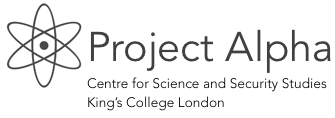The adoption of UNSC Resolution 2270 on 2 March 2016 imposing additional sanctions on the Democratic People's Republic of Korea (DPRK) in response to its fourth nuclear test and illicit use of ballistic missile technology earlier this year has seen the introduction of unprecedented inspection and financial provisions into the sanctions, thus considerably broadening the scope of the West’s existing restrictive measures against Pyongyang. Amongst them, cargo screening – referring to mandatory inspections of any cargo entering or leaving the DPRK – is of particular importance for the maritime transportation sector. Due to these new policy measures, all exporters, including freight forwarding firms, maritime transport firms and insurers, are now advised to increase their security and due diligence activities if they wish to remain compliant with UN sanctions.
Ship tracking – a service used by dispatchers to find and track the exact location of a vessel around the world – might prove as a particularly useful tool for any state trying to determine whether a North Korean vessel is currently in its waters, allowing it to raise the level of alert to the international community even before a formal cargo investigation is conducted by designated inspectors.
Furthermore, port operators, the entities charged with loading and unloading of cargoes at a port, are also responsible to ensure that no assistance is provided to the supply or transfer of goods subject to sanctions and are encouraged to adopt vessel tracking and sanctions checking solutions and consider whether vessels entering their jurisdiction have taken the appropriate steps to ensure that they are compliant with international regulations.
Some services providing fleet management, ship security and vessel monitoring systems to the maritime industry for this purpose already exist. Pole Star - a UK-based provider of tracking and monitoring services to the global maritime industry since 1998 – operates data centres for 47 maritime administrations and ship registries, with the Panama Ship Registry being the world’s largest, today running over 72% of all vessels currently trading in the world´s oceans. Its automated tracking system via the existing Inmarsat-Communications or dedicated standalone hardware makes it possible to monitor and manage a global fleet 24/7 using one system, with complete fleet data accessible in a single view. However, as this system requires ship operators to proactively integrate third-party hardware aboard the vessel, it is perhaps unlikely that it will be employed by proliferators or those looking to further illicit trade for the simple reason that the system is a voluntary one.
Similarly, marinetraffic.info, a vessel tracking website that counted 630961 vessels in its database at the time of writing, is a useful yet flawed system for ensuring compliance with international sanctions as it relies on an Automatic Identification System (AIS) which can easily be switched off by those looking to evade inspection or scrutiny. Even though the International Maritime Organisation (IMO) requires all vessels over 299GT to carry an AIS transponder on board, which transmits a ship’s position, speed and course, alongside other static information, such as the vessel’s name, dimensions and voyage details, proliferators may – and indeed probably would – choose to deactivate the tracking device on board the ship, thus rendering the service somewhat ineffective. It is worth specifying, however, that that the service does offer ship operators the possibility to transmit AIS data directly through Satellite so as to enable the monitoring of vessels' tracks well beyond the reach of their receiving stations (generally within a range of 15-20 nautical miles), including the oceans, thus making the tracking process considerably more reliable and transparent. However, this service is offered as a supplement to the standard AIS system required by the IMO and, as such, incurs an additional cost, which some ship operators may not be willing to pay. Again, as with Pole Star, it is safe to assume that those operators that do choose to employ this system to track ships at sea will likely be non-proliferators by virtue.
While proliferators may be able to evade such systems, governments and port operators can still take actions to counter maritime transport risks. As the UN Security Council has set out, governments and port operators should adopt such systems in order to know details of the vessels entering their ports and territorial waters. Any vessel entering a port without transmitting valid AIS should be viewed with suspicion. The operators, owners, and other parties involved in a vessel should also be screened against sanctions lists.
In conclusion, in light of UNSCR Resolution 2270 and the heightened security alert with regard to the possibility of North Korean proliferation, the maritime industry – which represents 90% of all world trade by volume and 70 % by value - is strongly advised to increase its due diligence efforts to identify whether there is any indication that a vessel is involved in non-compliance. Although the two existing systems that can be used for vessel monitoring (AIS and Inmarsat) are useful for the collection of tracking data by the international community in order to monitor activity at sea, they do not allow for comprehensive screenings and are therefore easily avoided by proliferators. It is imperative that these systems be adapted in a way that would allow for a better screening and vessel tracking so as to prevent any illicit activities by proliferators relevant to the maritime transportation sector.

